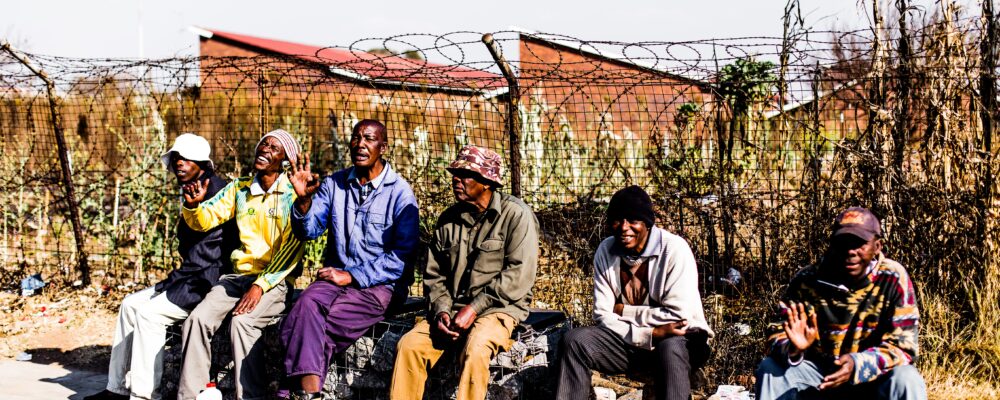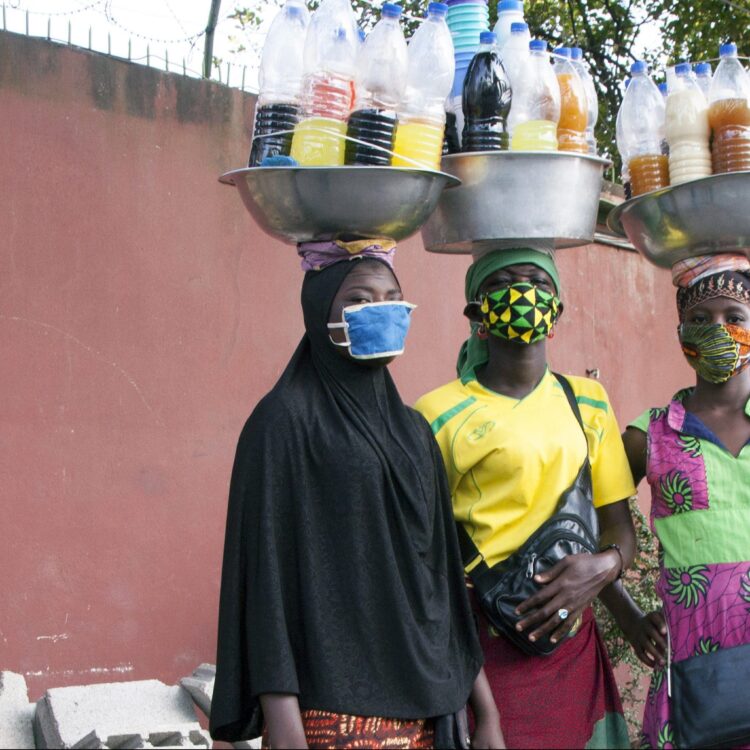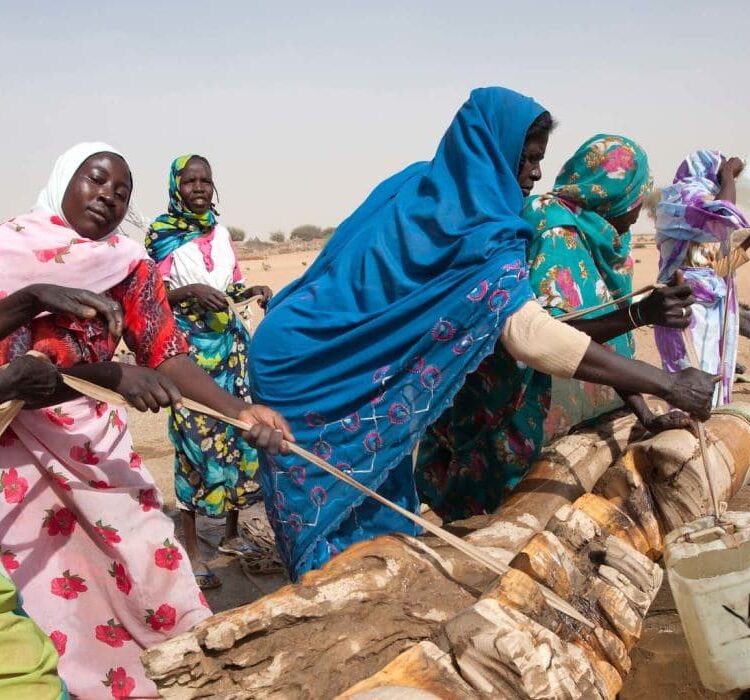
Innovations for Poverty Action’s (IPA) Research for Effective COVID-19 Responses (RECOVR) program has been working to track the impacts of the COVID-19 crisis in real-time, and share data quickly with decision makers to enable rapid and informed responses in low- and middle-income countries. The program include two separate surveys, the COVID-19 Economic Impact Surveys and the Rapid Response Surveys. The initial findings of these surveys reveal some expected (and some surprising) trends. What comes through most strongly is the deep interconnection between livelihoods, social protection, and food and wellbeing security that must be considered more explicitly in forming policies for recovery and longer term resilience.
The COVID-19 Economic Impact Surveys, a joint initiative with the International Growth Centre (ICG), are collecting information on how the pandemic has affected different economic agents (including large companies, informal businesses and SMEs, self-employed, workers, and farmers), with raw data already available for Nigeria. Of the 876 informal market vendors who were part of the survey in Lagos, only 132 (15%) were receiving government support, and an equal portion did not know how to apply for such support, showing a large gap in social protection coverage and transparency.
The Rapid Response Surveys, conducted in 8 developing countries so far (including 6 in Africa), are planned to run multiple times in each country in order to generate valuable longitudinal data on a range of socioeconomic trends, which can be aligned with the timing of various policy interventions to assess their effectiveness. The surveys have a core component, with additional modules adapted to country-level knowledge demands. Questions mainly surround the size and scope of disruptions to government service provision; the extent of vulnerability across geographies and demographics; and the impacts on work, education, healthcare and nutrition at the household level.
RECOVR research hub
Results from Ghana
On July 2, IPA held a webinar to discuss the results of the first round of the Rapid Response Survey in Ghana, which was conducted from May 6-26 and had 1,357 participants. The sample was acquired via random dialling of phone numbers, and although it was not fully representative (on average, participants were younger, more male, more urban and more educated than the national averages), the re-weighted results did not differ greatly from the raw results, so the evidence was considered valid for informing policy. The following key points came out of the survey:
- 3 in 4 respondents believed that they were not at risk of contracting COVID-19. The vast majority of these individuals attributed their lack of risk to following preventative measures – over 90% reported washing their hands more frequently and wearing masks, with the assumption that these make them immune. This has led to some risky behaviours, such as the breaching of social distancing rules, which increase the chances of disease spread.
- Households in Ghana have experienced significant losses in jobs, working hours and earnings as a result of lockdowns and border closures. While 65% of respondents reported working in February, only 41% did in the week prior to the survey in May. Of those still working, 41% had experienced lower earnings, and 29% reduced work hours, with more than 20% of interviewees scaling back inputs to their businesses. Retail and manufacturing firms were found to have been hit hardest by workplace closures and reduced demand. These trends are expected to have increased since the survey was carried out.
- Around 40% of children had not spent any time on education during school closures, and the ones who had been learning had spent, on average, just 6 hours per week on education. The main reasons for the lack of time learning included a lack of engagement from parents and a lack of support from teachers and schools. There was also a clear gap in interactive methods for learning – 60% of school children reported using their own school books, compared to less than 15% learning via internet resources.
- Despite government service subsidies in place since April 1, as well as new and expanded transfer programs, the number of beneficiaries from these interventions remains low. Just 14% of respondents reported benefiting from the free provision of electricity or water, since many of Ghana’s poorest households remain unconnected to the national grid. Moreover, just 2.8% were benefiting from cash or food programs, which could be due to inadequate eligibility criteria or delivery methods. Subsequently, over half of those surveyed had to deplete their savings since February 2020 in order to afford food, healthcare or other expenses, and poor households were more likely than non-poor households to have sold off assets.
- Food insecurity came through as a stark and pervasive problem. Issues on both the supply side (29% experienced shortages in food supplies, and 64% higher prices) and the demand side (57% struggled to afford food due to income losses) had led to two in five of households skipping meals, and many more limiting portion sizes and the variety of food they consumed. Food insecurity was more common in households with school-aged children, which poses risk to their development in addition to their immunity to the virus.
Implications for Policy
- More awareness is needed around transmission and comorbidity related to COVID-19. For example, knowing which types of masks work to protect people, and who is more at risk of serious illness. Many young African’s have already taken up this role of information sharing. Strong support is also needed from community leaders to spread important messages in local languages and encourage adherence to the rules. This would alleviate the need for enforcement through police coercion, which has caused social tensions to date.
- There is an urgent need for social protection to protect small businesses. Only 20,000 SMEs have received support from the USD 1 billion disbursement fund approved in April, even though small businesses contribute over 70% to Ghana’s GDP. This has already had a large negative impact on livelihoods at the household level, and will continue to worsen unless more support is given to get SMEs back on their feet.
- A lot of effort is needed to make up for missed education and create more resilient sectoral education plans for the future. It is first vital that all children return to school, including those that have not been learning. It is also important to improve communication between parents, teachers and schools to facilitate continued learning and, where feasible, to adapt learning content and methods to suit the variety of learner circumstances and make sure no child is left behind.
- Rethinking of subsidies and transfers is required to reach vulnerable households and avoid them falling (back/deeper) into poverty and exacerbating inequalities. Particular attention should be given to remote households who are not connected to the grid or who are financially excluded. Interventions should prioritise the availability and affordability of nutritious food to avoid knock-on effects in wellbeing and development later on. Household size could be a factor in determining the eligibility and adequacy of transfers to ensure that children in large households do not suffer disproportionately.


